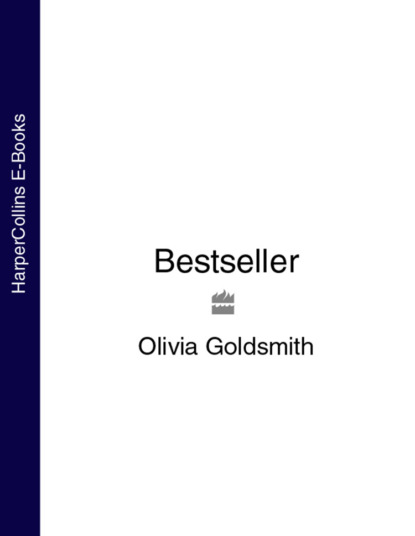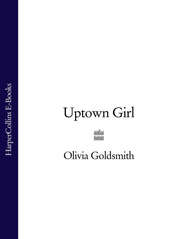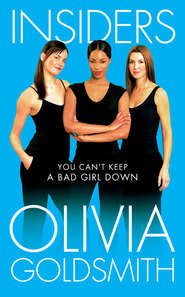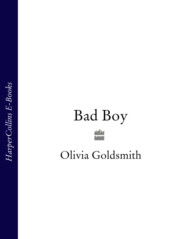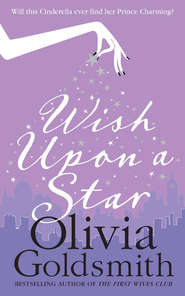По всем вопросам обращайтесь на: info@litportal.ru
(©) 2003-2025.
✖
Bestseller
Автор
Год написания книги
2019
Настройки чтения
Размер шрифта
Высота строк
Поля
It seemed so long to Judith since she’d been a student, even though it was only two semesters ago. And it seemed even longer since Daniel had kissed her that way. Perhaps he had never kissed her that way. Daniel was not what anyone would call the spontaneous type. Brilliant, yes. Ambitious, definitely. But spontaneous … No, Judith could never remember Daniel kissing her like that.
Of course, he hadn’t been free to kiss her on the campus, she told herself, trying to be fair. Judith always tried to be fair. She remembered reading somewhere that her name came from the Old Testament, that Judith might have been one of the judges, or perhaps she was just in the Book of Judges. Something like that. Daniel would know. He knew everything. So why was she being so critical? Judith felt confused. When she sat up here, working on the book, she sometimes let her mind wander, and she didn’t always like where it led her.
Below her, in the sunlight, the young man bent and picked up a backpack, swinging it easily onto his shoulder. He said something, and Judith could see another flash of teeth from the smiling girl. When was the last time I smiled, Judith wondered. Well, she reminded herself, I’ve always been a serious girl.
And theirs had been a very serious affair. After all, Judith had been a student and Daniel was her teacher. Not only that, he was married. Of course, his marriage had already been troubled for some time. Daniel was an honorable person, so he told her right from the beginning, and he had told her that he was deeply attracted to her. He thought she had talent—real talent—and that someday she could be a successful writer.
No grown man had ever paid that kind of attention to her. She had blushed with pleasure and confusion. And she had accepted his praise and his offer to go out for a cup of coffee. “You’ll be a successful writer,” he’d repeated, and there, under the table in the coffee shop, he’d taken her hand and squeezed it. Writing was her dream, her secret ambition. She’d never told anyone, much less a college professor, that she wanted to be a writer. They would laugh at her. But Daniel hadn’t laughed. He knew her secret, and he encouraged her.
She’d believed him, and here she was, actually married to him and working away, 279 pages into the manuscript. It wasn’t exactly the book she had planned to write. Not art. Not even close. It was a book they were sort of doing together. Not exactly for the art of it, and not exactly together, but … well, they needed the money now.
Her parents had been furious about Daniel, about his religious background, his marital status. They had threatened to sue the school and had cut her off without a penny. Not that Judith really cared. They’d always been well-off, and her father had always used money to control them all. That was probably why she’d gone to a state college in the first place. He’d been livid that she hadn’t applied to one of the Seven Sisters schools. But Judith, in her serious way, had told him she was sick of exclusivity and didn’t care about money.
Daniel didn’t care about money either. It was one of the reasons she loved him. At first she’d even been afraid to tell him that she was one of the Elmira Hunts. Daniel hated capitalism and inherited wealth. He told her that straight out. Like her, he believed in a meritocracy.
But now they were short of money. Really short. Daniel had to pay alimony and child support. So they were writing this book for their future, a book that could be commercial, that could make them some money and free Daniel from teaching so he could get to do some serious writing. Then she’d have time to get back to her first novel, the one that Daniel had praised so highly.
Judith heard the apartment door slam. Flaubert jumped up.
“I don’t hear you!” Daniel’s accusatory voice floated up the stairs from the kitchen. He often came home between classes for a sandwich and a quickie. Judith sighed. It just all seemed different now, when sex wasn’t forbidden but expected. Somehow the romance was—well, not gone exactly, but lessened.
“I don’t hear you,” Daniel called again. He loved to hear the sound of her old typewriter. He thought it was quaint that she refused to use a word processor. He called her his little Luddite. Judith wasn’t sure what that meant, but she’d never asked.
Now she gave Flaubert a settling pat and shouted out to her husband, “I’m thinking. Sometimes I’m allowed to think.” She immediately regretted the snappish tone in her voice.
Daniel hopped the three steps up to the little room in the turret that Judith used as an office. He wasn’t exactly handsome. He was a little too small, a little too tight-featured. But with his steel-rimmed glasses, his curling black hair, and his grin, he had an insouciance that always affected her. He was so different from her cold, controlling father. Even now, she couldn’t believe that she had attracted him. He’d graduated from Yale! And he’d been on scholarship. He’d spent a year at the Sorbonne. Daniel Gross was really educated, and Judith knew that her mediocre grades at the Elmira Academy did not measure up to Daniel’s prep-school education. He’d already read everything, and he’d even met some of the writers who wrote the great books he taught. His two courses on contemporary American literature were always overregistered. In her first semester Judith had actually been shut out of it. She almost smiled. Imagine that! And now she didn’t just get to admire his pepper-and-salt tweed jackets and his hand-knitted sweaters and his perfectly rumpled corduroys, she got to live with him and make love to him. I am happy, she told herself, looking up at him. I am very lucky and very happy.
Daniel approached her and put a hand on either shoulder. Flaubert growled, as he always did when Daniel touched Judith, but she told him to hush. Daniel’s hands were small, but his fingers were powerful, and he gently gripped the tense muscles in her neck and shoulders. “So, how’s it coming? Daydreaming, or have you got a junior case of writer’s block?”
She smiled at the little pun. Judith hadn’t graduated. She left last year, her junior year. Somehow, after Daniel, the degree didn’t seem important anymore. And as Daniel pointed out, what the hell use was a B.A. in English from a SUNY school? It was, he joked “as good as a one-way ticket to Palookaville.” Judith knew there were few teaching jobs anyway, and she had no interest in reading Silas Mamer with a class of hormonally challenged seventh-graders. No; she wanted to write, and she wanted to be taken seriously, and Daniel was helping her to do both.
“Have you made the changes to chapter eleven?” Daniel asked. Although the plot was basically her idea, Daniel had worked it into an outline, and it was that outline she was working from. He’d given her a schedule and insisted she produce six pages a day. Each evening he read and reread the pages she worked on and corrected them, edited them, and made suggestions. She spent the following day making his changes and getting on with the new stuff.
“No, but I finished chapter twenty-four. Only two to go!” She looked up at him, hoping for a smile of surprise at her industriousness. But he only reached for the pages and started to read. Silently, his eyes devoured the first page, then the next one and the one after that. She tried not to squirm while she Waited for his reaction.
“Okay,” he said. She colored. From Daniel, that was praise. “This looks okay. I’ll take it with me, back to class.” He stopped and looked at his watch. “In fact, I better go. I need some prep time.”
Judith stood up, trying not to let her disappointment show. A quickie was better than nothing at all. “Are you sure?” she asked. And tentatively she snaked her hand around his back, letting it rest on the tweed of his jacket just above his buttocks. She moved her hand lower. Through the scratchy fabric she could feel his round little behind. But Daniel kept his eyes on the chapter, then folded it in half, and—giving her a quick peck on her cheek—turned to go. No quickie today.
He ran down the three little steps and into the kitchen. She followed him, as lonely as a kid in a grammar school hallway, watching as he grabbed his beat-up leather briefcase and stuffed the new chapter into it. Flaubert stood beside her, his tail wagging as Daniel rebuckled the case, put it under his arm, and then—just as Judith felt completely let down—reached over and hugged her. “You did good,” he said and gave her a big kiss on her forehead-just as if she were a little girl. She smiled with pleasure. “See if you can get to those chapter eleven corrections this afternoon,” he told her, and Judith silently nodded her head.
5 (#ulink_2ca7e4fe-0c74-542b-9fff-55d0d2c8f176)
Someday I hope to write a book where the royalties will pay for the copies I give away.
—Clarence Darrow
Gerald Ochs Davis tapped the mouse twice and sent the new chapter off to the print queue. He had—finally—succumbed to the lure of technology and had allowed installation of a sophisticated PC, which was housed in a mahogany neoclassic cabinet. But he had drawn the line at having a clattering printer in his office. He leaned back in the tall, leather-upholstered chair and shot his cuffs so that they protruded out just the appropriate inch and a quarter beyond his perfectly tailored blazer sleeve. He wore a Patek Phillipe wristwatch—he called thin as a small novella. In discreet white thread his initials were embroidered on the inside of his white cuffs. He looked down at the monogram—GOD. He allowed himself a very small smile.
His friends would consider the inside, white-on-white monogram just another one of his small idiosyncrasies. All endearing—at least to his friends. His enemies, and they were legion, would simply chalk it up as another one of his nasty affectations. But Gerald knew his enemies, and following the Arabic advice, he kept them close to him. He also knew why they hated him: simple jealousy. Gerald had had the good fortune to be born into a wealthy, prestigious family, he had had the fun of being thrown out of the very finest prep schools, he had bedded, married, and divorced (not always in that order) four of the world’s most beautiful women. As if that wasn’t enough, he now not only ran one of the oldest and certainly the largest publishing company in New York City, but he also wrote some of its most touted books. Not to mention having the coveted corner table reserved for him in the Grill Room of the Four Seasons every day of the week he was in the city. Gerald’s life was full and rich, and he understood that those with a more paltry portion were, naturally, envious. It came with the territory.
And quite a large territory it was. Gerald looked around his office, an enormous room almost fifty feet long, which contained not only his magnificent English Regency partner’s desk but two separate seating arrangements, a floor-to-ceiling library of first editions, a massive window with a view across to the Chrysler Building and the East River, as well as an original Chippendale conference table that seated eighteen—in original Chippendale chairs. Aside from the large and luxurious bathroom (complete with sauna), his suite also consisted of a small private dining room, another conference room for larger groups, an impressive reception area, and two secretarial offices. In fact, his offices took up so much space in the building and were so luxuriously appointed that many of his employees referred to Gerald’s floor as “God’s Little Acre”. It was virtually an acre of space—Gerald had once had it measured—and at eighty-two dollars a square foot, it was probably the most expensive executive suite in all of the city. That made Gerald smile, too. In an industry noted for its lack of frills and style, Gerald had more than his share of both.
But there were complications and tragedies in a life of such privilege. Gerald got up from his desk and checked himself in the Duncan Phyfe mirror that hung between two windows of the south wall. He adjusted one eyebrow. His hair, all of it, was false, glued on every morning. Gerald suffered from alopecia areata, a disease that had rendered him totally hairless from the age of three. Some doctors thought it hereditary, others felt it was psychologically based, the product of an unloving home. Gerald didn’t know the reason. AH he knew was that each morning he put on his wig, his eyebrows, and even his upper eyelashes.
There was a knock at the brass-inlaid door. Gerald ran his hand across his eyebrow, smoothing it, and called out. Mrs. Perkins appeared, the printout in her hand. “Do you want this now?” she asked.
Gerald’s good mood evaporated as he eyed the manuscript pages in his secretary’s age-spotted hand. The woman should do something about those. “Yes,” he said curtly. “And I’d like some coffee. Jamaican Blue Mountain.”
Part of Mrs. Perkins’s job was to grind and brew Gerald’s dozen or so daily cups of coffee. And he was very particular about his coffee. He had given up red meat, dairy products, other fats, cigarettes, and even—with great reluctance-red wine. But he’d be damned if he was giving up his caffeine. He planned to live forever, but he wanted to be alert while he was doing so. And if he was going to drink coffee, he was only going to drink the best coffee. Only Gerald and the Queen of England bought Jamaican Blue Mountain in bulk. At sixty dollars a pound, it was expensive, but there was a line on Davis & Dash’s annual budget that read “executive office canteen supplies,” and Gerald’s exorbitant coffee bill was buried in there. To Gerald there was nothing that heightened the pleasure of a luxury more than not having to pay for it himself.
Because, despite his six-figure salary and his seven-figure bonus, Gerald was always short of cash. This came of living well in New York City and of having three expensive wives, two of them exes, along with four children in college, as well as a demanding mistress to support. Even Gerald, long used to profligate spending, could be shocked by his current monthly expenses.
Part of the problem was that Gerald had been raised among the very, very rich and moved among the very, very rich but was, actually, himself, only moderately well-off. His family’ had created no trust funds. Gerald’s only sinecure had been the publishing firm, his stock, and his job at Davis & Dash. But his father had sold the firm when Gerald was a young man, and although some of the family still retained shares, Gerald’s portion of the sale money had been spent long ago.
Since then, unforeseen by Gerald’s now aged father, the company had been sold again, and yet again. This last time it had been acquired by a major communications conglomerate. Davis & Dash was the corporate jewel in their crown. Through all of the acquisitions, while other heads rolled, Gerald had managed to keep his above water. After all, he was a member of publishing royalty, he was the Davis of Davis & Dash. He knew everyone in the business, and he brought in the top money-making books, not to mention the most prestigious (though not always profitable) authors. No one would dare to fire Gerald Ochs Davis. He was a resource of the firm as important as the backlist. He knew it, and so did the corporate moguls, Philistines though they were. Gerald was, after all, the most well-known publisher in New York.
And Gerald was an author himself. In the early years of his career, he had become vaguely unhappy, working as an editor, then editor in chief, and, finally, publisher. It seemed to him that all of it lacked a certain je ne sais quoi. Being the midwife at the birth of an important book was exciting, but after a dozen years of it Gerald had realized that the spotlight was never on the midwife but always on the mother and child—and some of them were real mothers. Gerald had realized, rather late in life, that he wanted to write.
Well, that wasn’t exactly true. Gerald did not want to write, he wanted to have written. He wanted to see his name in the New York Times Book Review, on the spines of books, and on the cover of volumes displayed in bookstore windows. He wanted to be mentioned in “Hot Type” in Vanity Fair. He wanted a black-and-white photo of himself, taken by Jill Krementz, on a dust jacket. Gerald wanted the thing that writers got, which eluded all editors: He wanted credit.
He also wanted money. After all, there he was making million-dollar contracts with barely literate horror-genre writers, people who thought that brand names were adjectives, for God’s sake, while he himself was perennially short of spondulicks. Something was wrong with the picture.
But Gerald had not been sure he could write. He had a deep fear of making a fool of himself—after all, he was already Gerald Ochs Davis and didn’t need to make his name. He also didn’t need to destroy the name he had by doing something louche or stupid. So he had begun cleverly, dipping his toe in the water of words, so to speak, by writing a nonfiction book called Getting It All. He had used every contact he had to launch and promote the book. He had also mounted a campaign to have each secretary at Davis & Dash call bookstores across the country and buy multiple copies. It had all managed to get the slim self-help volume onto the bestseller list. He had been clever and picked the right subject at the right time. Twenty years ago his book gave people permission to be selfish. The altruism of the sixties had faded, but the outright greed of the eighties had not fully kicked in when his book, a sort of updated Machiavelli, had pointed the way.
He had his first success, but Gerald didn’t want to write nonfiction. There was no status in that, unless you did exquisitely researched biographies of important artists or political figures. Definitely not his style. Nor was there any real money in it. So, with a certain amount of fear but propelled by the success of Getting It All and his need for more cash, he wrote his first novel, a roman à clef. It was a scabrous tell-all about two sisters, one who marries the president and the other who manages to sleep with her sister’s husband along with almost everybody else. He’d gotten lots of dish from Truman Capote, Louis Auchincloss, and Gore Vidal, and the book had sold like hotcakes. The only downside was that Jackie never spoke to him again. But that was not such a bad thing—after all, there was a certain éclat in feuding with the Queen of New York, and anyway, she worked for a rival publisher. The book had certainly raised society eyebrows. But it had raised his income as well, and for the second time, Gerald Ochs Davis had a bestseller. If critics tore it apart and those in society pretended shock at his disclosures, Gerald knew their invidious cavils were based on envy.
But the truth was, it had been more onerous since then. The novelty of a well-known publisher-turned-writer and the rehash of a well-known scandal wore off quickly. Sadly, there weren’t that many unknown skeletons for Gerald to rattle as a basis for his plots. His second novel, Polly, was the story of a prostitute who worked her way up to become the madam of the most exclusive whorehouse in New York and,-eventually, the wife of a Corporate chairman. Once again, Gerald based the story on reality—he used Davis & Dash staff to help with research—and those in the know were aware that he was writing about Molly Buchanan Dash, now a widowed doyenne in her eighties. It may have been ungallant, but Polly was a modest success and paid tuition bills and alimony for two years—though it didn’t quite make the lists.
But with the precedent set, Gerald felt free to write himself a three-book, million-dollar contract, and that was back in the days when a million dollars was real money. Then, dutifully, he had written a book each year since, mainly because he needed the money. Each book sold a little less well than the one before, but if the royalty payments were smaller, the advances got bigger. Yet they were spent so fast.
Now, working on his latest novel, Gerald needed the money more than ever. But he also needed this book to succeed. If he had been hurried and lazy on the last two—and he had—it must have shown, because he had been punished.
Publishing was unlike any other business. When books were ordered and shipped, it did not mean that they were bought. Booksellers had the right, unique among industries, to return books that didn’t sell. As Alfred Knopf had wittily put it, “Gone today, here tomorrow.” (It was considered very bad form to wish authors on their birthdays “many happy returns.”) With his last book, he had picked a subject that never seemed to pall: Lila Kyle, the murdered starlet. He didn’t call her Lila Kyle, of course. Still, the story of a Hollywood brat raised by her wacky movie star mother to become the flavor of the month, only to be assassinated by a crazed fan, was in a way the story of the American dream turned nightmare. Despite Gerald’s exhortations to the sales force and his insistence on a first printing of 150,000 hardcover copies, the book had shipped only 100,000 copies. Of course, it hadn’t helped that Laura Richie, the celebrity gossip, had written a book on the same subject. Hers sold, making all the lists. His did not. On top of that, an unbelievably humiliating 80,000 had been returned. Even now they were stored in a Midwest warehouse because Gerald was too proud to remainder them and see them on book tables all around the country at a dollar a copy. He thought of Jonathan Cape, the prestigious London publisher, who was once asked by an Englishwoman if he kept a copy of every book he printed. “Madam,” he replied, “I keep thousands.”
Gerald’s returns had been a major débâcle, and he was still licking his wounds and fudging numbers to cover the failure. Because now, when he needed the money more than ever, Davis & Dash was publicly held, and accounting was trickier and more difficult. If Gerald did continue to use Davis & Dash as a private fiefdom, at least he was smart enough to cover his tracks. Even in a huge, publicly held company there were ways to manipulate numbers, to move inventory credits from one author and have them assigned to another. You had to be smart and careful. Gerald was both—and his returned books had been moved to the columns of other, more successful writers like Peet Trawley, who would never notice the difference. After all, what were they going to do? Stand in the warehouse and count all the printed and shipped volumes?
But Gerald’s contract would run out with this latest book, and to justify another huge advance he would have to see some sales. So he was doing his best. It was actually the story of his aunt and uncle, both prominent New York socialites in the Roaring Twenties, who were famous for their style, their parties, and the dissolute ending of their lives. Gerald’s uncle had shot his aunt dead after finding her in bed with another woman—one he had been sleeping with. And Gerald, desperate for a plot, had used this family scandal as the basis for his glitzy potboiler. If he had nothing new to disclose—after all, he’d only met his uncle once or twice—the book revived a forgotten juicy scandal.
The problem was, what if his best wasn’t enough?
Now he looked up at his secretary, patiently waiting for him. “Did you review them?” Gerald asked Mrs. Perkins. Gerald enjoyed being recondite—he always tried to use words people would not know. But despite his multi-prep-school education—or because of it—Gerald’s spelling and punctuation still weren’t what they should be, and his senior secretary was allowed to review his draft simply to make it understandable.
“Yes,” Mrs. Perkins said. “But I think the lesbian love scene is too graphic.”
“Mrs. Perkins, editor of genius,” Gerald snapped. What he did not need now was negative feedback. What he had to do was push forward, finish the goddamned book, and see what happened then. If worse came to worst, he could always bring Pam in to edit it. Pam Mantiss was his editor in chief, a woman he had slept with, promoted, and piled work onto for more than a decade. She was smart and hard and hardworking. In fact, she did most of his Work because he didn’t have the time for it anymore. Now he looked up from his desk, “When I want an editorial opinion, I’ll ask Pam,” Gerald told Mrs. Perkins. “What I’d like from you is some coffee.”
Mrs. Perkins merely nodded and put the pages down on the right-hand corner of his desk. “Ellen Levine called about that contract,” she told him.





